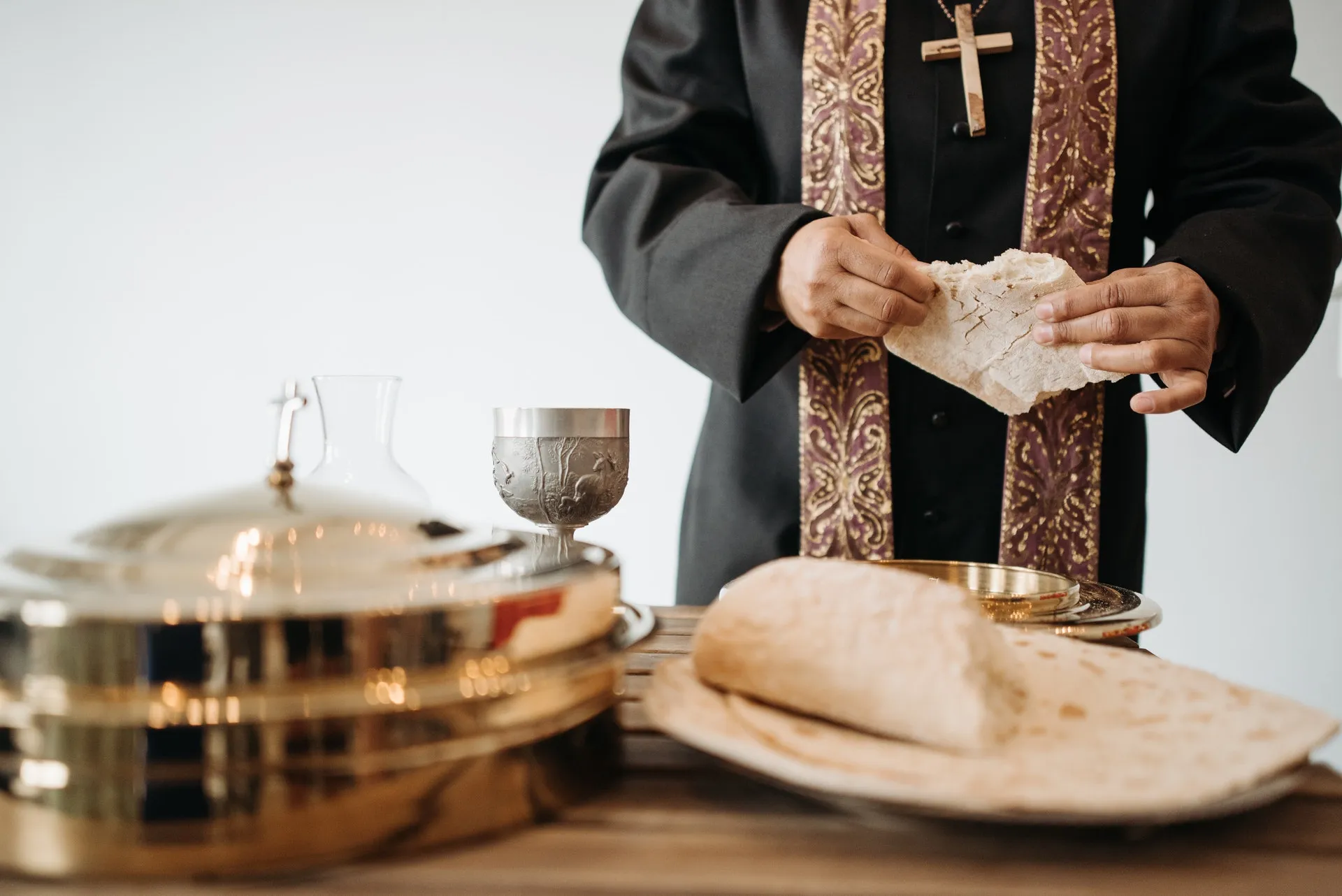A Christian Food Odyssey: Discovering the Significance of Holiday Dishes Around the World
Christianity is a diverse and rich faith with many traditions and customs, including the food consumed during special occasions. From Christmas in the West to Easter in the East, Christian celebrations are often marked with unique foods rich in symbolism and significance.
In this article, we’ll explore the different types of foods consumed during Christian holidays around the world. We’ll look at traditional dishes and delicacies that are enjoyed by believers in different cultures, and discuss the meaning behind these foods.

Whether you’re celebrating a holiday yourself or simply interested in learning more about Christianity around the world, this article is for you. So, join us on a journey of culinary discovery as we explore the special occasion foods of Christianity. Read on to learn more!
An Introduction to Christianity and Special Occasions
Christianity is a religion that has been practiced for centuries around the world. One of the most exciting aspects of Christianity is its unique and diverse food culture, particularly during special occasions.

From Christmas to Easter, Christians celebrate various holidays with a variety of food traditions. For instance, in Italy, they have panettone and pandoro cake on Christmas Day. In the Philippines, Bibingka rice cake is served during Simbang Gabi or Night Mass before Christmas.
In addition to these festive treats are traditional meals such as fish on Good Friday which symbolizes Jesus’ sacrifice on the cross; Hot Cross Buns eaten during Lent; Oliebollen doughnuts served in Dutch households at New Year’s Eve; and Mince pies consumed by British people at Christmastime.
These dishes not only provide sustenance but also serve as an important reminder of Christian values such as faithfulness and gratitude for God’s blessings. They often bring families together around a shared meal and help create lasting memories that transcend generations.
As we continue to celebrate our faith through these culinary traditions let us never forget their significance beyond satisfying our hunger pangs – it connects us with each other by sharing stories about how we prepare them – stories passed down from generation to generation capturing history itself while celebrating our Lord Jesus Christ!
Traditional foods are consumed during Christian holidays.
As a Christian youth pastor, one of my passions is teaching young people about the rich traditions and customs associated with our faith. One aspect that often gets overlooked is the food we consume during special occasions.
Across the globe, Christians celebrate holidays such as Christmas and Easter with unique culinary traditions that reflect their cultural heritage. For example, in Greece, it’s common to feast on lamb roasted on a spit for Easter Sunday. In Italy, you’ll find families enjoying panettone – a sweet bread filled with dried fruits – during Christmas festivities.
One traditional dish enjoyed by many Christians worldwide is hot cross buns; these spiced buns are typically consumed on Good Friday to symbolize Jesus’ crucifixion. The crosses atop each bun serve as a reminder of his sacrifice for us all.
Another staple of Christian holiday feasts is fish dishes like cod or salmon – especially popular in Catholic countries where meat isn’t eaten during Lent or other fasting periods leading up to Easter celebrations.
By learning more about these delicious foods and their significance within our faith communities around the world, we can deepen our appreciation for both Christianity’s diversity and its unifying themes of love, sacrifice and redemption.
Examples of special-occasion foods in different Christian cultures
One of the beautiful aspects of Christianity is its diversity. Different cultures have their unique ways of celebrating special occasions, including through food. In this article section, we will explore some examples of special occasion foods in different Christian cultures.

In Greece, a traditional Easter meal includes lamb roasted on a spit and served with red-dyed eggs symbolizing Christ’s blood and resurrection. In Italy, Christmas Eve is celebrated with a feast called La Vigilia (The Vigil), which consists of seven fish dishes representing the seven sacraments.
In Mexico, Dia de los Muertos (Day of the Dead) is celebrated by preparing sweet bread called Pan de Muerto (bread for the dead) decorated with bone-shaped pieces made from dough. The bread represents the body returning to Earth after death.
In Ethiopia, Timkat celebrates Jesus’ baptism and involves feasting on injera (a sourdough flatbread) served with wot (spicy stews). During Lent in Lebanon and Syria, people consume meatless dishes like mujadarra made from lentils and rice or fasoulia stewed beans.
These are just some examples that show how food plays an important role in celebrating faith across different Christian cultures worldwide. As Christians ourselves who value diversity as part of God’s creation plan for humanity; it’s essential to learn about these cultural traditions as they remind us that our faith transcends borders while uniting us through shared experiences like meals during celebrations such as Christmas or Easter!
The symbolism and significance of these foods in Christian celebrations
Food plays a significant role in Christian celebrations, both in terms of symbolism and sustenance. From the bread and wine of communion to the fish shared by Jesus with his disciples, many foods are deeply connected to Christian beliefs and traditions.
In many cultures around the world, certain foods are consumed on special occasions as a way of honoring religious customs. For example, during Lenten season leading up to Easter Sunday, Christians often abstain from meat or other indulgences as a form of self-discipline and sacrifice.
On Easter Sunday itself, however, there is usually an abundance of food – particularly eggs (which symbolize new life) – as well as lamb or ham (symbolizing Christ’s sacrifice). In some countries such as Greece or Italy there might be traditional sweets like tsoureki (a sweet bread) or colomba pasquale which is similar to panettone but with candied fruit rather than raisins.
Similarly at Christmas time there may be specific dishes served depending on where you find yourself celebrating it: for instance tamales in Latin America; mince pies across Europe; fish dishes in parts Southern Europe etc…
By understanding these food traditions within Christianity we can better appreciate how culture shapes our religious practices. It also helps us reflect upon our own relationship with God through everyday activities such sharing meals together with family members who have different cultural backgrounds than ourselves!
How to prepare and enjoy these foods for your own special occasions?
Food plays a significant role in Christianity, especially on special occasions. From Christmas feasts to Easter brunches, preparing and enjoying these foods can enhance the spiritual experience of these celebrations.

One way to prepare for these special occasions is by exploring traditional Christian recipes from around the world. For example, in Greece during Holy Week leading up to Easter Sunday, it is customary to consume a dish called magiritsa – a soup made with lamb offal and herbs. In Italy during Christmas Eve, many families enjoy seafood dishes like eel or salted cod.
When preparing these dishes for your own special occasion, it’s important not only to focus on their flavors but also their symbolism within the Christian faith. Take hot cross buns for example; they are traditionally consumed on Good Friday as they symbolize Jesus’ crucifixion with the cross design baked onto each bun.
As you gather with loved ones around your table filled with delicious food this holiday season, take some time out of your day-to-day routine and reflect on how this meal connects you spiritually as well as physically. The act of sharing food together has been an important practice in Christianity since its inception; let us continue that tradition today by cherishing one another’s company over shared meals rich in history and meaning.
Conclusion
Understanding the traditional food consumed on special occasions in Christianity is an important and meaningful way to connect with one’s faith. By exploring the how, what, why, symbolism and significance of Christian foods across cultures we can become more informed about our own traditions and celebrate as Christ-followers. As you plan for upcomingChristian celebrations remember to gather your community around meaningful dishes that capture a connection with God’s love!












